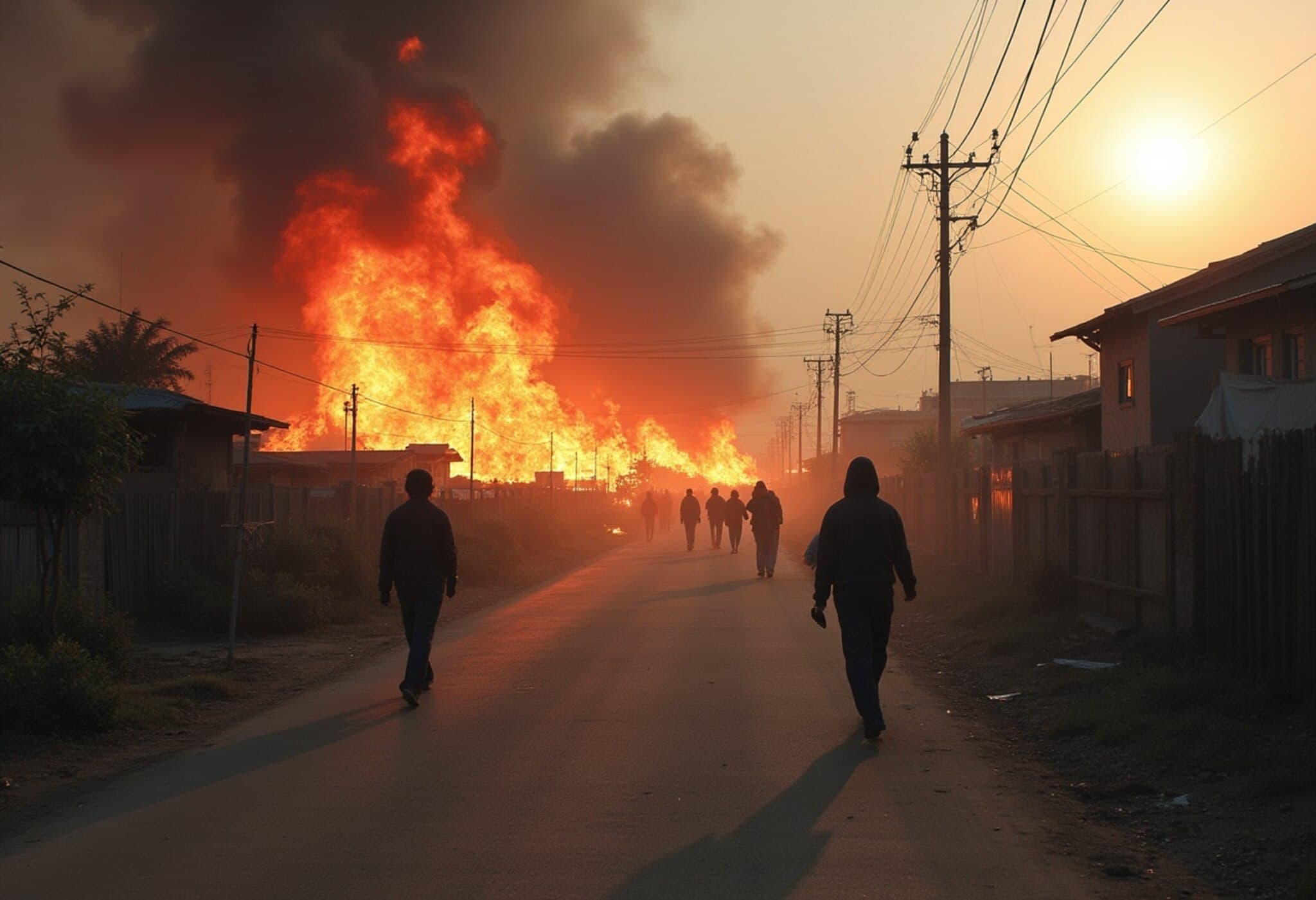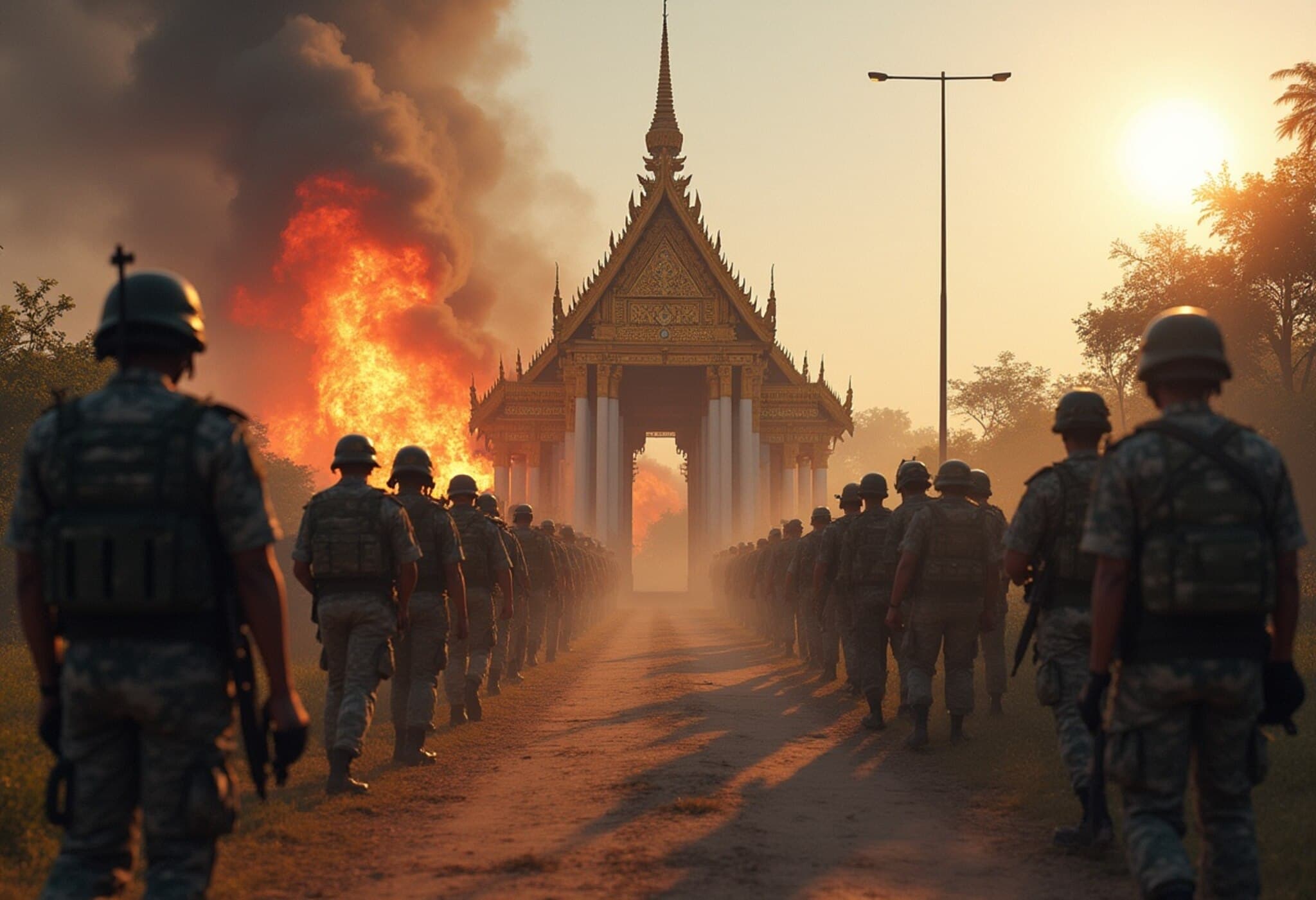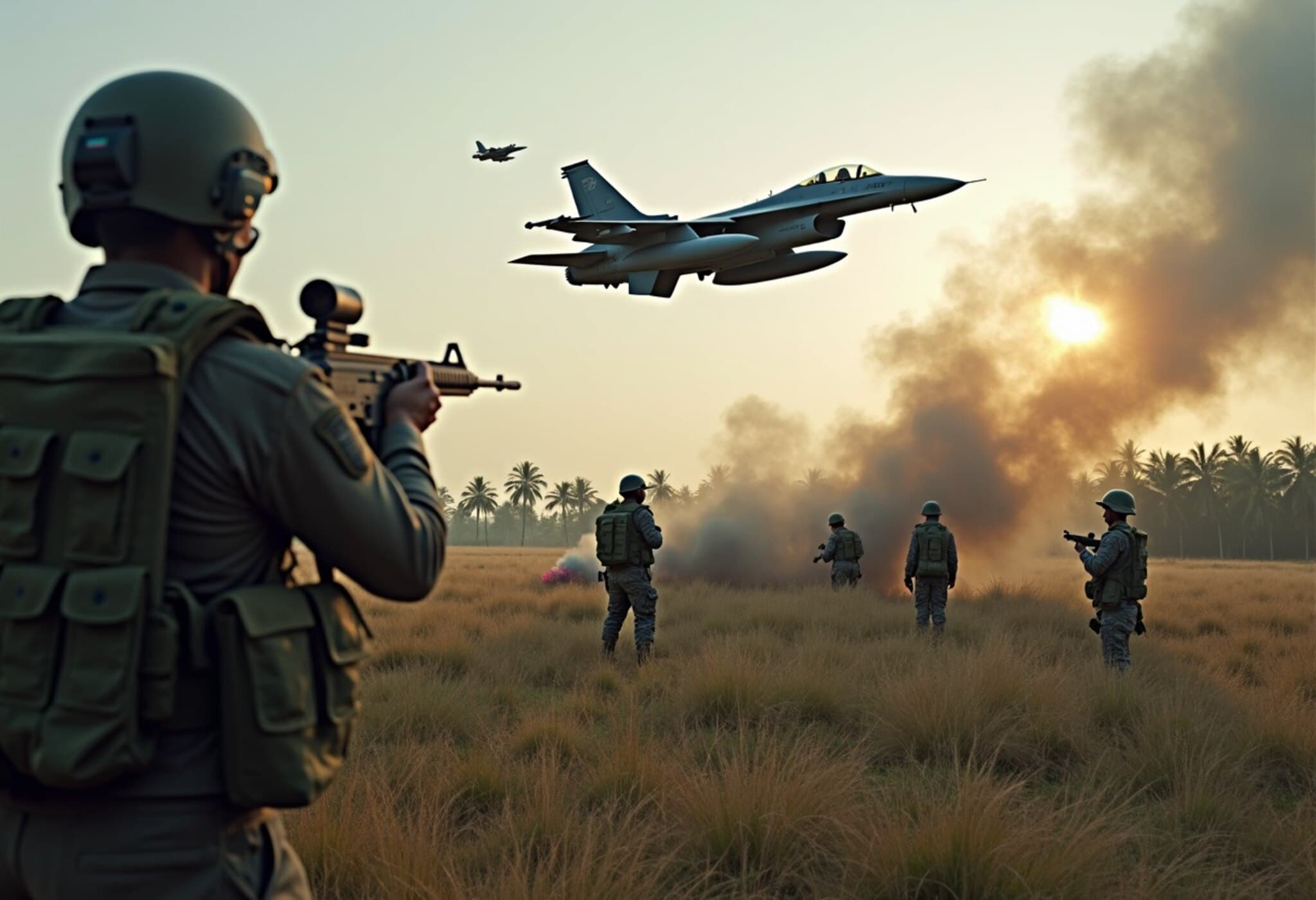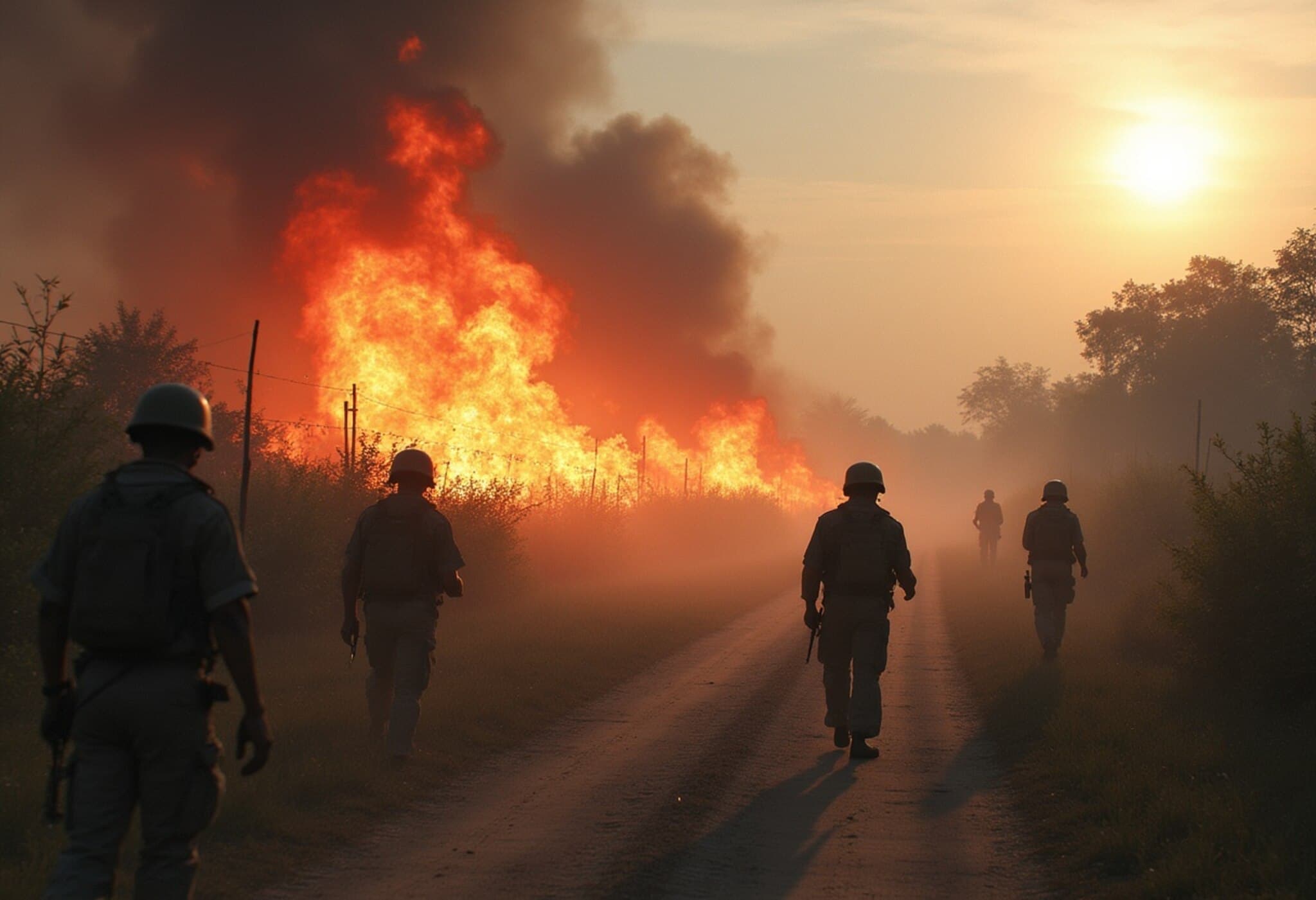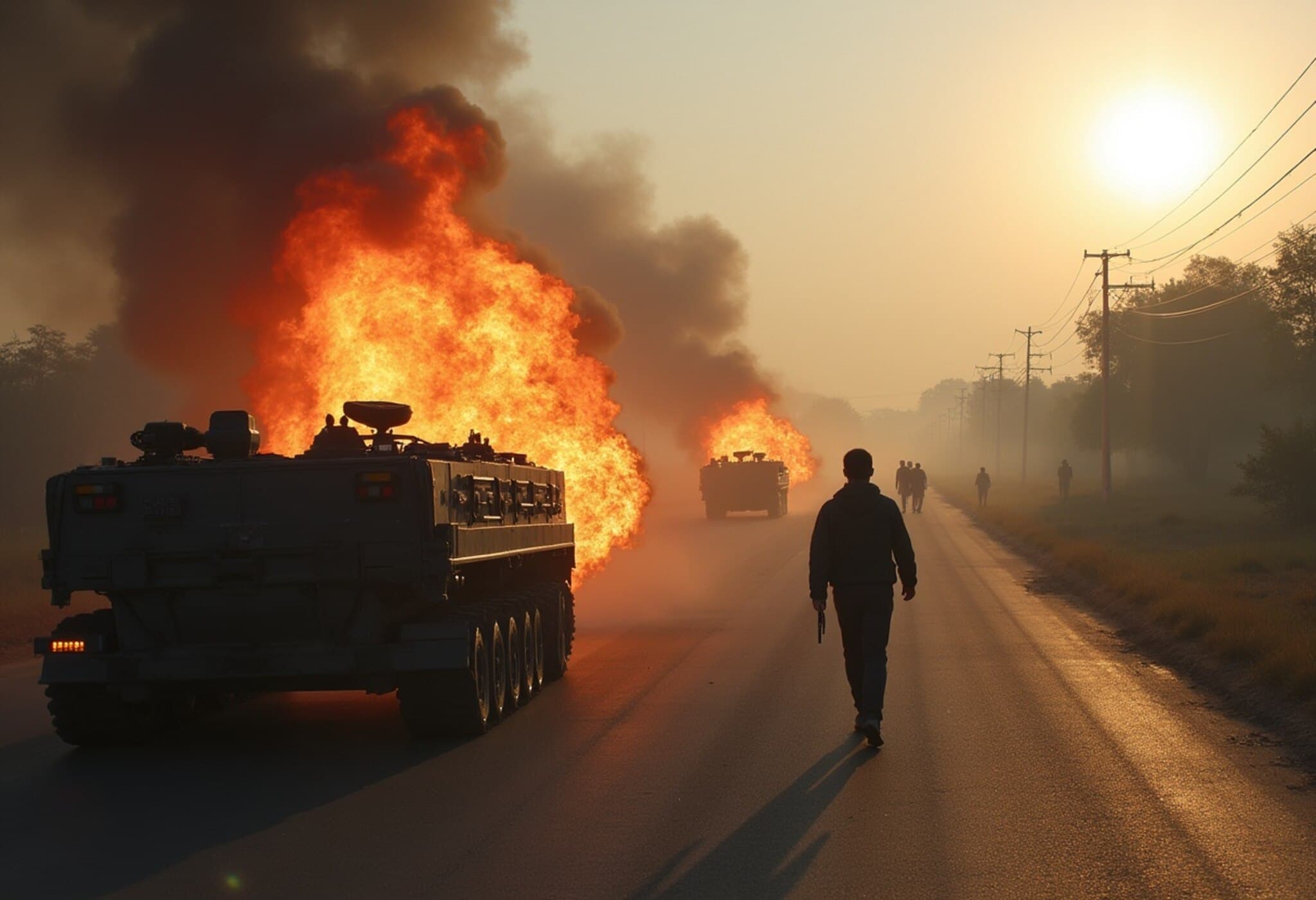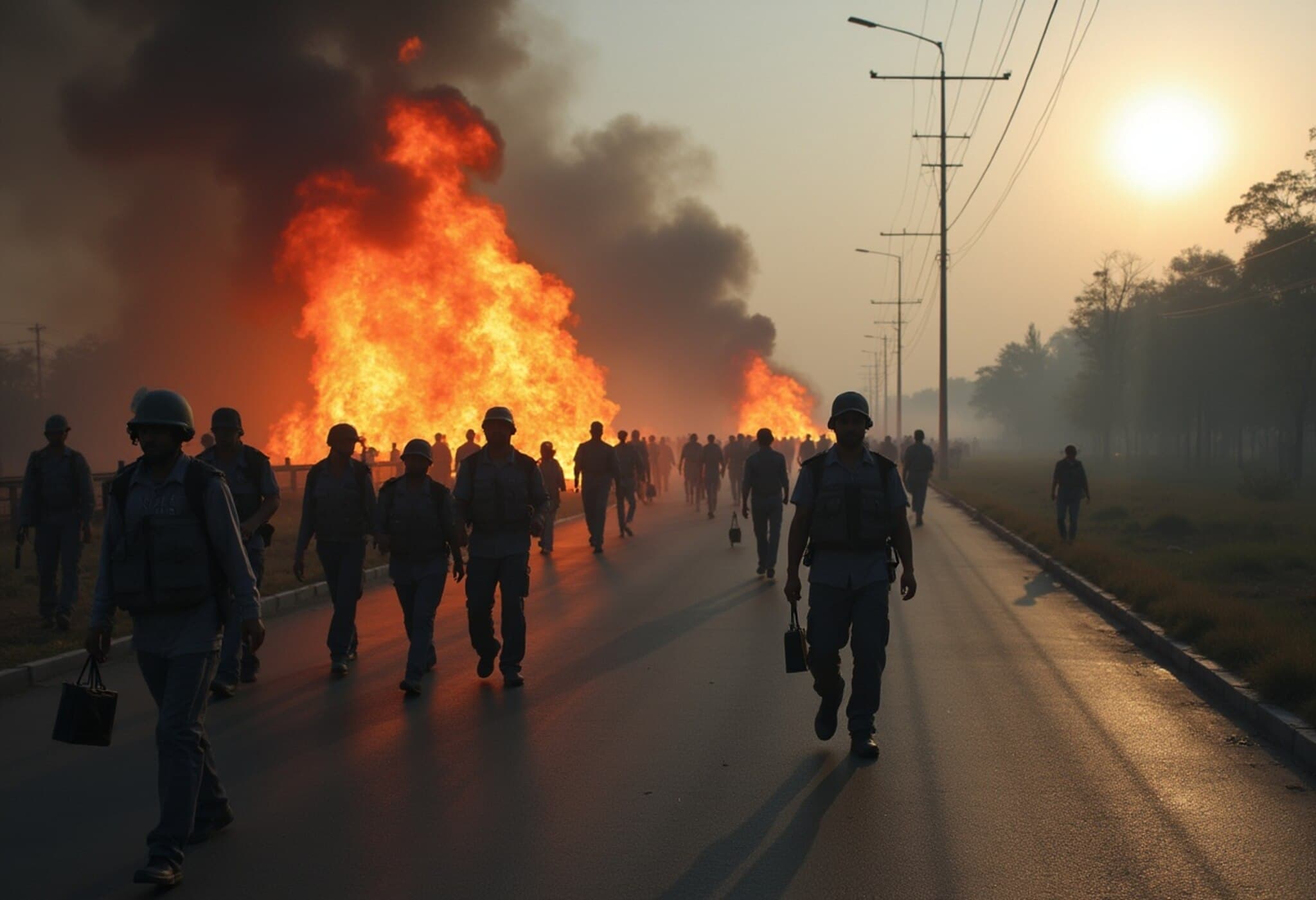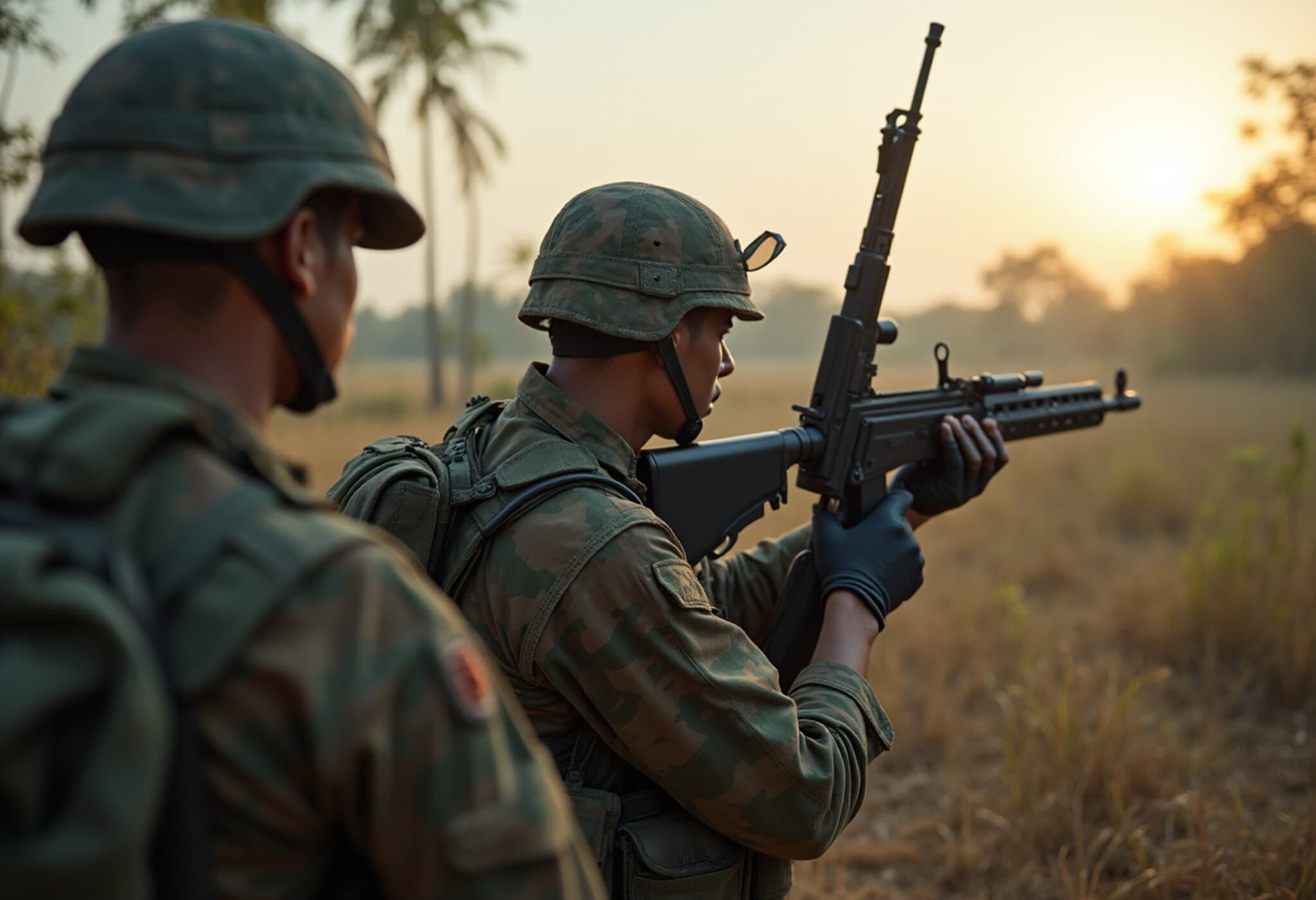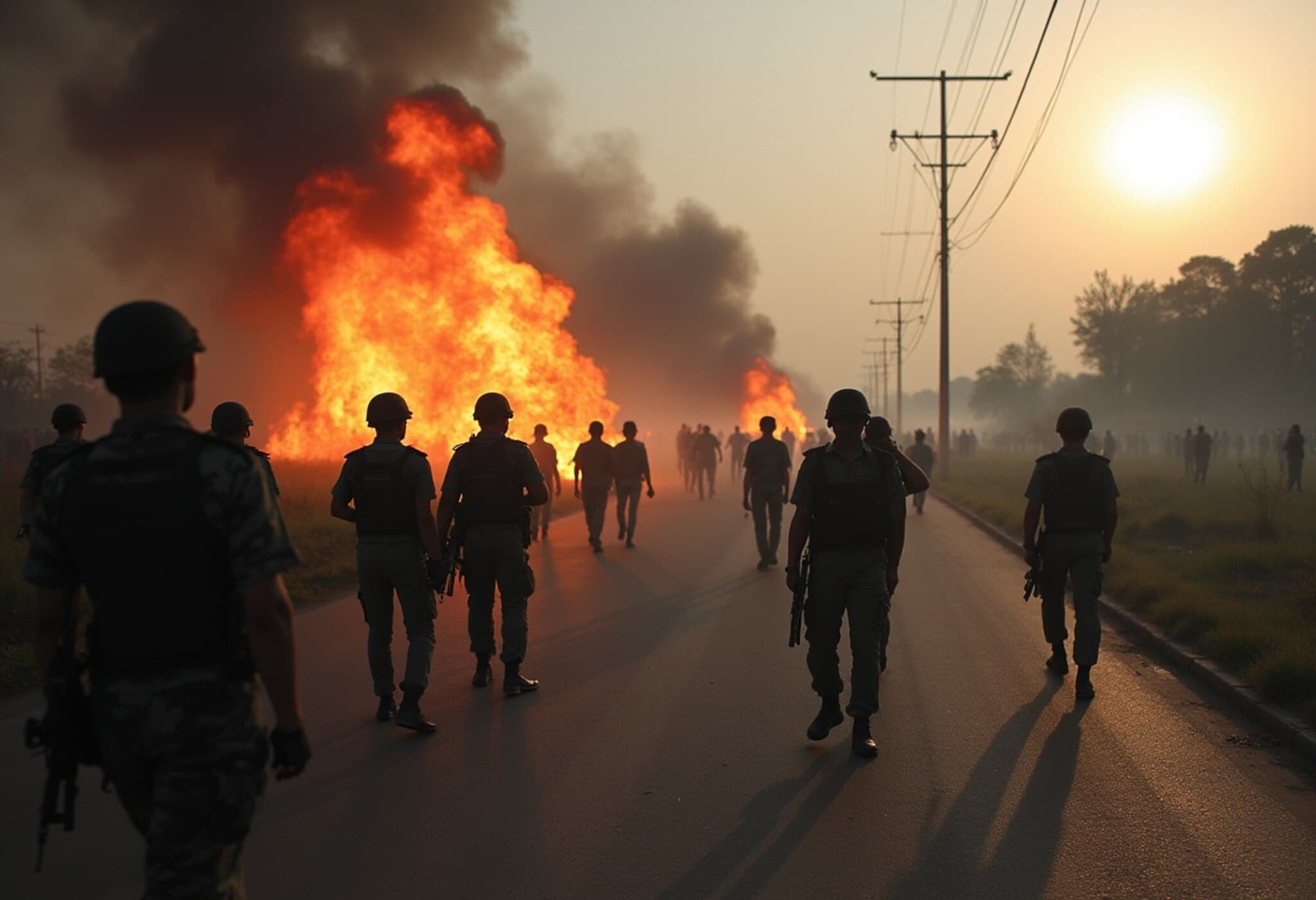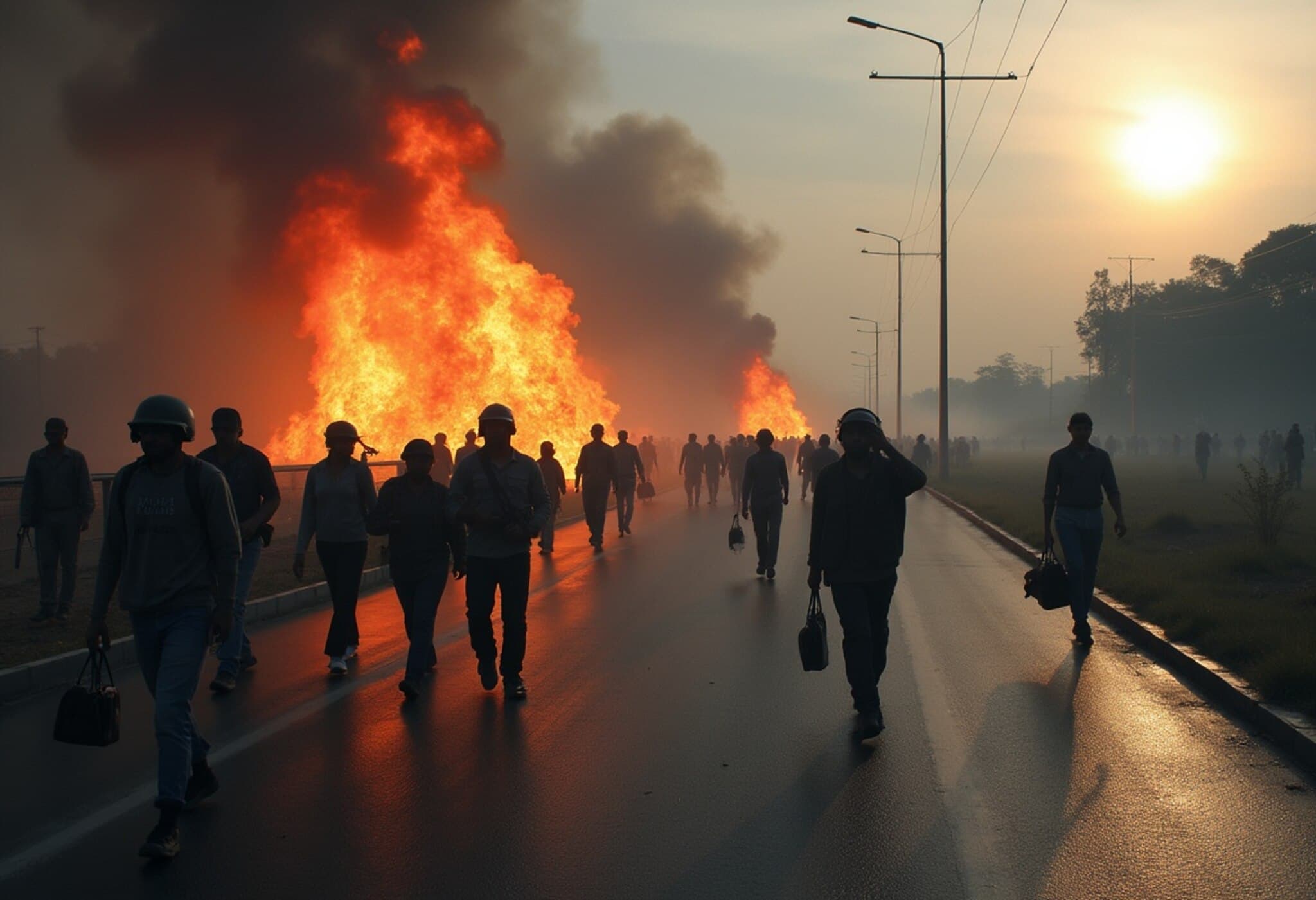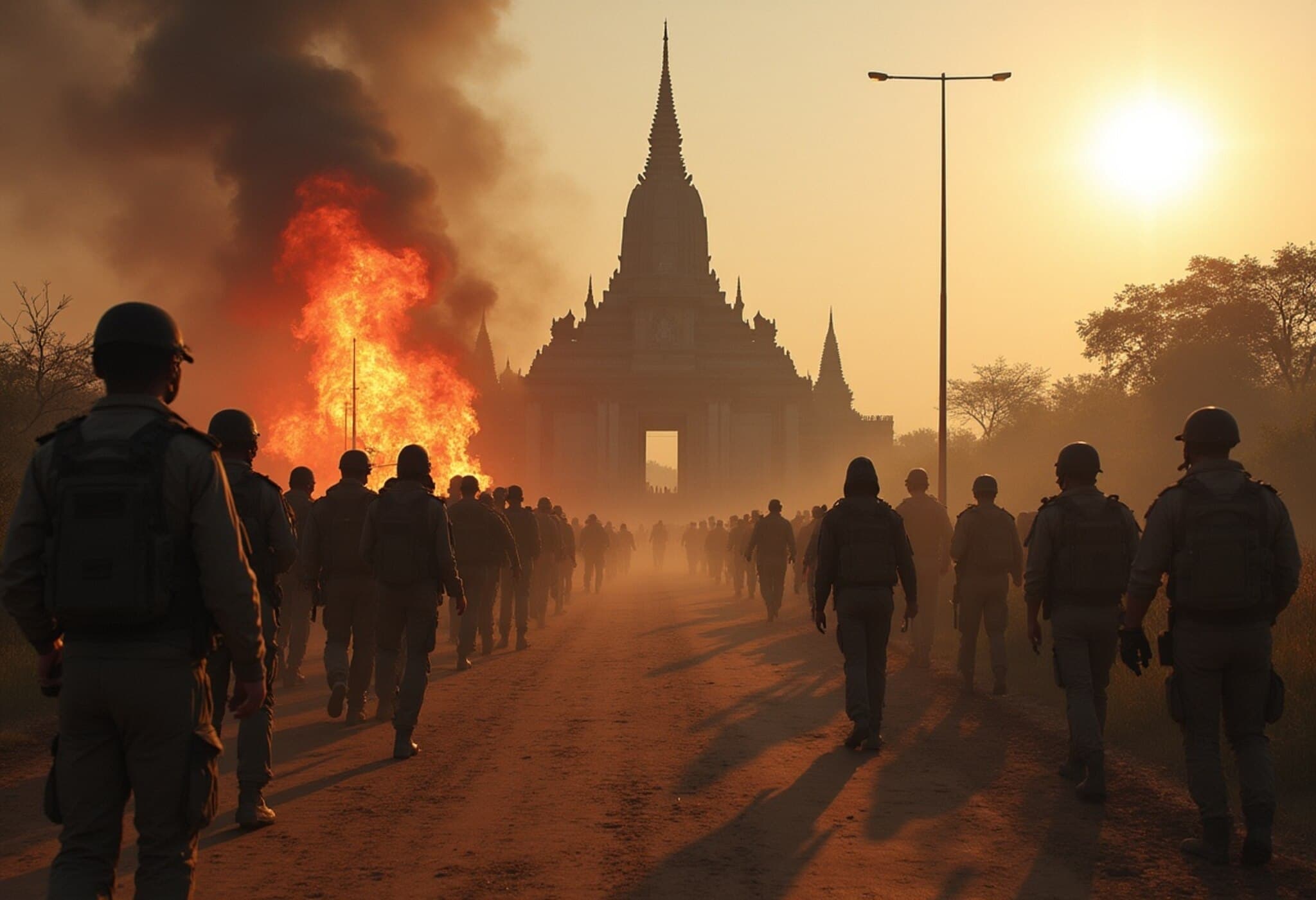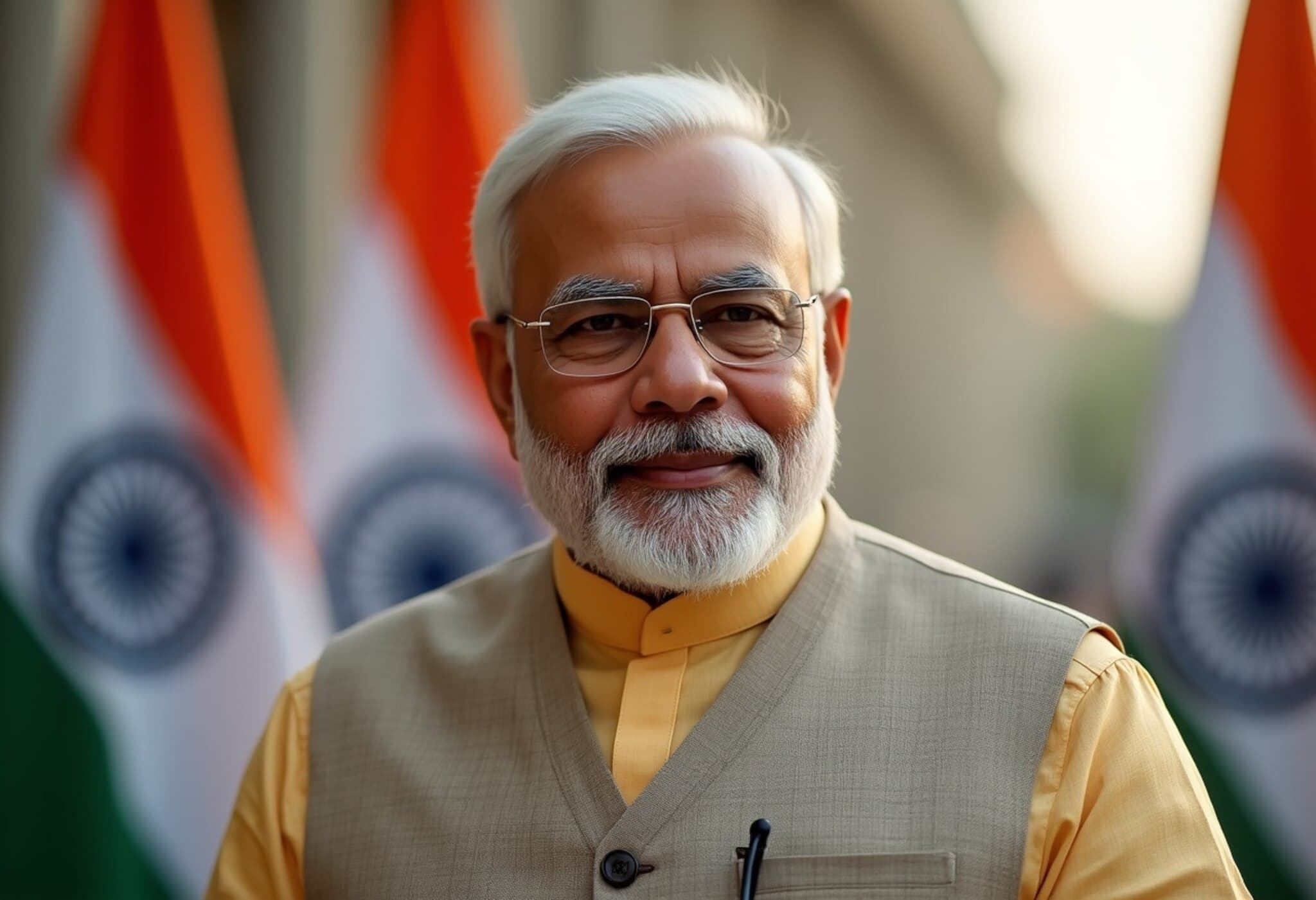Rising Death Toll Amidst Escalating Thailand-Cambodia Border Conflict
Violence along the Thailand-Cambodia border has intensified sharply, with the death toll climbing to at least 32 fatalities as territorial disputes reignite longstanding tensions. The clashes, which have extended into their third consecutive day, have forced over 130,000 civilians to flee the contested areas, reflecting the severity and human cost of this regional conflict that now teeters on the brink of all-out war.
New Frontlines and Military Engagements
In a worrying development, the fighting expanded to Thailand's coastal province of Trat, located more than 100 kilometers from previous conflict zones, signaling an alarming geographical spread of hostilities. Thailand's acting Prime Minister, Phumtham Wechayachai, has cautioned that this clash marks the worst violence between the neighbors in 14 years and carries the possibility of escalating into full-scale war.
Historical Context Fueling the Conflict
This latest surge follows a tense standoff triggered by the killing of a Cambodian soldier in late May, after which both nations dispatched reinforcements amid fragile political conditions within Thailand. The disputed border, stretching over 800 kilometers, includes multiple ambiguously sovereign zones including historic landmarks such as the Preah Vihear temple, a UNESCO World Heritage site since 2008, whose ownership remains a point of contention despite a 1962 International Court of Justice ruling favoring Cambodia.
The Humanitarian and Military Toll
- At least 19 deaths recorded on the Thai side, predominantly civilians.
- Cambodian fatalities have reached 13, including both military personnel and civilians.
- Significant numbers of wounded and displaced people have overwhelmed local resources.
Shelling and rocket attacks have not only targeted military sites but also allegedly struck civilian infrastructure, including hospitals and villages, raising grave concerns over adherence to international humanitarian law. Cambodia accuses Thailand of deploying cluster munitions, which Thailand denies as it is not a party to the Convention on Cluster Munitions but claims use conforms to principles of proportionality focused on military objectives.
Diplomatic Tensions and the International Response
Both Thailand and Cambodia have sought support from the United Nations, each accusing the other of initiating unprovoked aggression. The UN Security Council convened a closed-door emergency session, emphasizing a collective call for de-escalation and negotiation. ASEAN, under Malaysia’s chairmanship, is poised to offer mediation efforts to prevent further deterioration.
While Thailand advocates for bilateral dialogue, Cambodia has pushed for international involvement, highlighting disparities in military capabilities and painting itself as the smaller nation defending sovereignty.
The Challenges Ahead for Regional Stability
Analysts point to the fragile nature of Southeast Asia’s border disputes as a crucial flashpoint not only within bilateral relations but also in the broader regional security architecture. The potential spillover effects threaten economic development, cross-border trade, and could strain ASEAN’s capacity for unified conflict resolution.
Voices from the Ground: Evacuations and Local Impact
Communities on both sides of the border face immense hardship. With villages emptied and shelters overcrowded, evacuees like Pornpan Sooksai, who fled with her four cats amid shelling, personify the human toll of geopolitical stalemates. Others recount memories of past flare-ups, noting an unprecedented intensity and indiscriminate violence affecting children and the elderly.
The evacuation of thousands, often in makeshift carts and dugout bunkers, challenges humanitarian organizations and underscores the need for urgent peaceful resolution to restore normalcy.
Editor’s Note
The renewed hostilities along the Thailand-Cambodia border spotlight the complexities of unresolved post-colonial territorial disputes in Southeast Asia. Beyond the immediate humanitarian crisis, this conflict raises pressing questions about regional governance, respect for international law, and the role of global institutions and ASEAN in averting war. As tensions simmer, the world watches whether diplomacy can prevail over brinkmanship, and how the delicate balance of power in this critical region will evolve.

